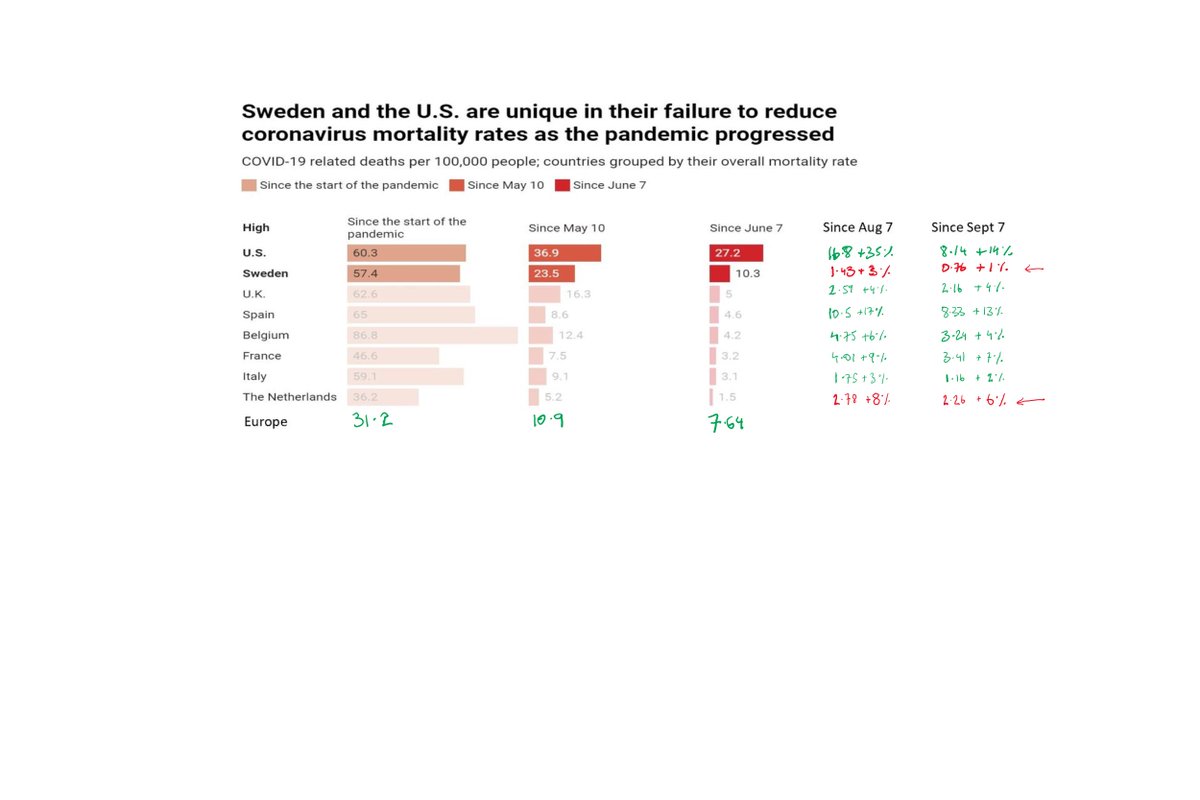
1/19 Want to provide counternarrative to piece @TodaywithClaire @MacCoillte with @NiamhOBeirne from @HSELive re #covid19 & #Antigen testing-see "Track & Trace" segment from 4'50" onward @LeoVaradkar @CarrollJennifer @MurphyEoghan @MichealMartinTD @DonnellyStephen @michaelmina_lab
2/19 rte.ie/radio1/today-w… NO'B stated #Antigen tests are 50~60% sensitive at most in asymptomatics & only recommended by HSE in symptomatic patients such as in outbreaks or hospital settings. Its v disappointing that a health official with such a huge audience would say this.
3/19 Saying #Antigen has "low sensitivity" is nuanced & deserves context.We know when compared to pos #PCR cases,antigen has "low" sensitivity.We also know up to 75% of time a #Covid19 patient is tested with PCR and pos they're NOT INFECTIOUS bmj.com/content/372/bm… @profbuchan 

4/19 If we're looking (screening) in an asymptomatic/pre symptomatic population for INFECTIOUS #Covid19 patients, comparing sensitivity of #Antigen to #PCR when non-infectious PCR positives are included, is a null comparison. @NiamhOBeirne said PCR is "Gold Standard" but is it?
5/19 If setting is clinical & patient is unwell then #PCR is an excellent test with exquisite sensitivity for viral presence.If its a public health setting where we're SCREENING seemingly well patients to find unknown pockets of disease we want to know who is infectious RIGHT NOW
6/19 In that case #Antigen is a much more effective way to gather quick, cheap, reliable & actionable information about infectiousness - #PCR is NOT THE GOLD STANDARD for this task. @michaelmina_lab @profbuchan thelancet.com/journals/lance… 

7/19 @HSELive data (yet published?): ~7.5k #Antigen tests & "50% accuracy" that @NiamhOBeirne referred to is reminiscent of data from Liverpool pilot liverpool.ac.uk/media/livacuk/… This was heavily criticised with suggestions antigen is potentially harmful bmj.com/content/371/bm…
8/19 That criticism didnt account for fact that Ct values across labs arent standardised, so the viral load of ~>100k RNA copies/ml required for + viral culture (an analogue for infectiousness) which often tallies with Ct<30-33 was in fact more like Ct<21 in the Liverpool pilot.
9/19 Concerns re narrow window at beginning of infectious period when #Antigen can miss an infectious patient are resolved with frequent testing (x2/week) where antigen approaches 100% sensitivity, in a population who would otherwise not be tested at all 
https://twitter.com/michaelmina_lab/status/1360653139708420106?s=20

10/19 @NiamhOBeirne also said (potentially false) negative #Antigen result could prompt people to "do things they would otherwise not have done" suggesting it could lead to false sense of security & risky behaviour - a claim also made by @LeoVaradkar here
https://twitter.com/MlMcNamaraTD/status/1362416111275433987?s=20
11/19 There's no strong evidence to support inappropriate behaviour theory as an ongoing concern.Liverpool pilot showed a neg #Antigen test resulted in no behaviour change in >60% & <9% showed any intention of behaviour at odds with public health advice liverpool.ac.uk/media/livacuk/… 

12/19 These criticisms & others have been addressed extensively by a team of very senior authors including @michaelmina_lab @profbuchan @louiseckenny @SMHopkins @jacquiavelli @ProfCalumSemple among others here: liverpool.ac.uk/media/livacuk/…
13/19 @TodaywithClaire suggested to @NiamhOBeirne that #Antigen was not a Panacea, and the reply was that antigen is "not the way forward" and that #PCR is what "scientists & medics would prefer". I respectfully suggest that we clarify what we are looking for & be clear and fair.
14/19 Meanwhile, Irelands private sector are screening asymptomatics with #Antigen testing to good effect, yet our authorities prefer to pretend this isnt happening & so far refuse to engage or help with supply; financial incentives or regulation @Paschald thesun.ie/news/6527653/x…
15/19 Finally the issue of training was raised. Valid concerns exist about sensitivity of #Antigen when used by lay people. The Porton Down UK National Evaluation showed experience & training confer higher sensitivity. medrxiv.org/content/10.110… 

16/19 But studies have shown adequate sensitivity is possible if lay people are trained to self test. We must expect that good info, familiarity & repetition with #Antigen would result in fluency & effectiveness similar to that of the home pregnancy test if rolled out nationally. 



17/19 Similar and encouraging findings in self sampling for PCR testing jamanetwork.com/journals/jaman…
18/19 Authorities #NPHET are missing point of #Antigen testing & its potential to EMPOWER our people in #Ireland.Vaccine will help but variants will be there & may hamper their effectiveness - we need to be ready if the goalposts move AGAIN.We've earned the right to be ambitious.
19/19 As some very learned people said: "Its wrong not to test...In the midst of a raging plague, it is inequitable and unethical not to deploy high quality rapid tests alongside existing public health interventions" thelancet.com/journals/eclin…
• • •
Missing some Tweet in this thread? You can try to
force a refresh




